Imperialism 3-pack
3 CDs
Includes:
U.S. Imperialism & the War with Spain
Imperialism is usually associated with voracious and belligerent European states like Britain, France, Spain and Portugal. They conquered and colonized much of the world. By the time the U.S. entered the international arena in the late 19th century, there wasn't much left to grab but Spain was weak and vulnerable. The U.S. war with Spain was a turning point. It thrust the country into the Caribbean and the Pacific. The war's legacy, particularly with Cuba resonates today. 1998 is the 100th anniversary of the Spanish-American War.
Recorded at a benefit for Revolution Books.
On Imperialism
"Our fingers will be in every pie," declared Sen. Robert Taft. "Our frontiers today are on every continent," announced JFK. And indeed it has come to pass. In mainstream media and scholarship it has been rare to find the noun imperialism preceded by the adjective American. The cover for aggression is cloaked in the lofty rhetoric of democracy, nation building and humanitarian intervention. Alan Murray, CNBC Washington Bureau Chief wrote in the Wall Street Journal, "We are all, it seems, imperialists now." He might be speaking for the elites that run America not for voices of conscience like Noam Chomsky. Interview by David Barsamian. Recorded at MIT.
Imperialism: Then & Now
Joseph Schumpeter in a 1919 essay entitled "The Sociology of Imperialisms," wrote, "There was no corner of the world where some interest was not alleged to be in danger or under actual attack. If the interests were not Roman, they were of Rome's allies, and if Rome had no allies, then allies would be invented. When it was utterly impossible to contrive such an interest-why, then it was the national honor that was insulted. The fight was always invested with an aura of legality. Rome was always being attacked by evil-minded neighbors. The whole world was pervaded by a host of enemies, and it was manifestly Rome's duty to guard against their indubitably aggressive designs." Just substitute United States for Rome today and see if there is some resonance and echo. Recorded at the World Social Forum. Interview by David Barsamian.
Speakers

Howard Zinn
HOWARD ZINN CENTENARY 1922-2022
Howard Zinn, professor emeritus at Boston University, was perhaps this country’s premier radical historian. He was born in Brooklyn in 1922. His parents, poor immigrants, were constantly moving to stay, as he once told me, “one step ahead of the landlord.” After high school, he went to work in the Brooklyn Navy Yard. During World War II, he saw combat duty as an air force bombardier. After the war, he went to Columbia University on the GI Bill. He taught at Spelman, the all-Black women’s college in Atlanta. He was an active figure in the civil rights movement and served on the board of SNCC, the Student Nonviolent Coordinating Committee. He was fired by Spelman for his activism. He was among the first to oppose U.S. aggression in Indochina. His book Vietnam: The Logic of Withdrawal was an instant classic. A principled opponent of imperialism and militarism, he was an advocate of non-violent civil disobedience. He spoke and marched against the U.S. wars on Afghanistan and Iraq. His masterpiece, A People’s History of the United States, continues to sell in huge numbers. Among his many other books are You Can’t Be Neutral on a Moving Train, Failure to Quit: Reflections of an Optimistic Historian and Original Zinn with David Barsamian. Shortly before his death he completed his last great project, the documentary The People Speak. Always ready to lend a hand, he believed in and practiced solidarity. Witty, erudite, generous and loved by many the world over, Howard Zinn, friend and teacher, passed away on January 27, 2010. He would say, Don’t mourn. Get active. The struggle for peace and justice continues.
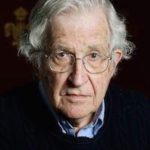
Noam Chomsky
Noam Chomsky, by any measure, has led a most extraordinary life. In one index he is ranked as the eighth most cited person in history, right up there with Aristotle, Shakespeare, Marx, Plato and Freud. His contributions to modern linguistics are legendary. In addition to his pioneering work in that field, he has been a leading voice for peace and social justice for many decades. Chris Hedges says he is “America’s greatest intellectual” who “makes the powerful, as well as their liberal apologists, deeply uncomfortable.” The New Statesman calls him “the conscience of the American people.” He is Professor Emeritus in the Department of Linguistics and Philosophy at MIT and Laureate Professor of Linguistics and Haury Chair in the Program in Environment and Social Justice at the University of Arizona. At 95, he continues to inform and inspire people all over the world. He is the author of scores of books, his latest are Consequences of Capitalism, Chronicles of Dissent and Notes on Resistance.
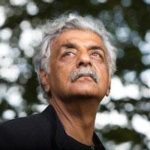
Tariq Ali
Tariq Ali, an internationally renowned writer and activist, was born in Lahore, Pakistan. For many years he has been based in London where he is an editor of New Left Review. A charismatic speaker, he is in great demand all over the world. In his spare time, he is a filmmaker, playwright, and novelist. He is the author of many books including The Clash of Fundamentalisms, Pirates of the Caribbean, Speaking of Empire & Resistance with David Barsamian, The Duel: Pakistan on the Flight Path of American Power, The Obama Syndrome, The Extreme Centre and The Forty-Year War in Afghanistan: A Chronicle Foretold.

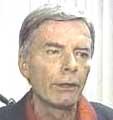
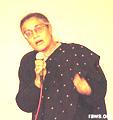


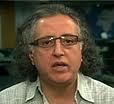

Reviews
There are no reviews yet.